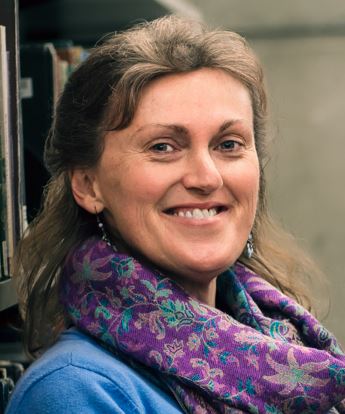The quality of education and care for children in Australia currently sits at the forefront of public debate. Governments have responded to critical calls for children’s safety in before school settings with new mandatory measures, urgent regulatory changes, and funding investment to boost the capacity of the workforce.
Three key policies fundamentally influence educators’ practice in the early childhood education and care (ECEC) sector.
- The National Quality Framework (NQF)
- The Early Years Learning Framework (EYLF), and;
- The modern awards.
Educators must work collaboratively (according to the NQF) and inclusively (in line with the EYLF) as key indicators of quality, yet with disparate pay and conditions (following the modern awards).
I embarked on a PhD to deeply analyse the NQF, EYLF, and modern awards—a first of its kind—and explore how educators understand and enact policy in practice. I located disconnections between government documents and inconsistencies as teams of educators translate policy in many ways.
As I near the completion of my research, I am producing a strategic plan to realign the early childhood policy landscape in Australia. I focus on presenting opportunities to revitalise ECEC policy through short term, medium term, and long-term actions. By spotlighting the current complexities of teamwork in ECEC, I offer a new approach to policy that can be undertaken by governing bodies and the workforce itself.
Policy with good intentions
The National Quality Framework (NQF) was released in 2012 in response to the OECD’s 2006 international review, which highlighted the importance of the early years and inspired a global quest for quality ECEC. The NQF aims to improve educational outcomes through a National Law and National Regulations, a National Quality Standard (NQS), an assessment and quality rating process, and approved national learning frameworks. The modern awards sit outside the scope of the NQF, driving legislated industrial conditions for over 70% of the ECEC workforce.
Through analysing policies, I found that the NQF, a reform with good intentions, can be deciphered and applied in various (and at times unintended) ways as teams simultaneously navigate their legal requirements of the modern awards. Teams of educators contend with many interpretations of policies as they strive to make quality decisions for children’s education and care.
Teams piece together the ECEC policy puzzle
To explore how policies translate into practice, I recruited four long day care centres in Queensland to share centre documents and participate in focus groups. This enabled research into how centres interpret policy through written expectations for teams—for example, position descriptions, centre philosophy, and governance structure—and how teams of educators say they implement policy in practice.
Through rigorous analysis I show teams of educators grappling as they fit together and apply policy documents to make decisions for children’s learning. My findings illuminate the taken-for-granted expectation that everyone pitches in with everything (the NQS and EYLF), which sits in tension with position descriptions and prescribed wage levels—not everyone is paid to do everything (modern awards).
A problem yet to be solved
Now over a decade since the introduction of the NQF, workforce stability remains an issue yet to be resolved, hampering efforts to teams achieving quality ECEC.
ECEC workforce shortages have been exacerbated by persistent issues of attracting and retaining qualified educators, high attrition from the sector, and persistent calls for increased wages and conditions. The ECEC Workforce Capacity Study forecasts an additional demand of 54,000 educators and teachers by 2034.
The National Workforce Strategy 2022-2031 prioritises a focus on responding to identified barriers of the reform. Key actions include improving professional recognition of the ECEC workforce, attracting qualified educators and teachers, and engaging the sector in upskilling.
My research highlights a different barrier to the ECEC workforce. As I analysed policies alongside one another, I identified contradictions in the ways they can be interpreted, negotiated, and enacted in teams.
A fresh take on ECEC policy
Three complexities are most visible at this point in my doctoral studies and offer a fresh take on ECEC policy.
First, staffing structures must comply with the individualistic and hierarchical approach of the modern awards, which dictates each educator’s wage and responsibilities. This contrasts with the NQS and the EYLF where collaboration and the notion that everyone contributes to decisions is an indicator of quality ECEC. Policy that accounts for fair distribution of roles and responsibilities and at the same time encourages teamwork will go some way to respond to the tensions as educators negotiate their work.
Second, the introduction of the degree-qualified teacher in teams aimed to lift the quality of early education. Yet without clear indication of when and how the degree-qualified teacher contributes to decision-making, or what the role should look like in teams, the expectations for their position may not differ from others in the team. Policy that explicitly harnesses the skills and knowledge of the degree-qualified teacher will lead to tangible change following the increase in early childhood educator qualification requirements.
Third, each centre must appoint a designated Educational Leader to lead the implementation of quality curriculum and pedagogy in teams. The role can be diversely qualified—from certificate III to degree—and though eligible for some non-contact time and an allowance, the Educational Leader may hold little actual authority in centre decisions. Policy that enables the Educational Leader to enact a formal leadership role will see the value of their professional knowledge embedded further into team decision-making.
What’s next?
Watch this space in the coming months for publication of my research. I will offer new ways for policymakers, approved providers, and educators to think differently about how teams could work within policy intent to improve quality outcomes for children.

Jessamine Giese is a PhD Candidate at Queensland University of Technology. This article is drawing on doctoral studies, with supervision team Associate Professor Megan Gibson and Dr Marie White.







